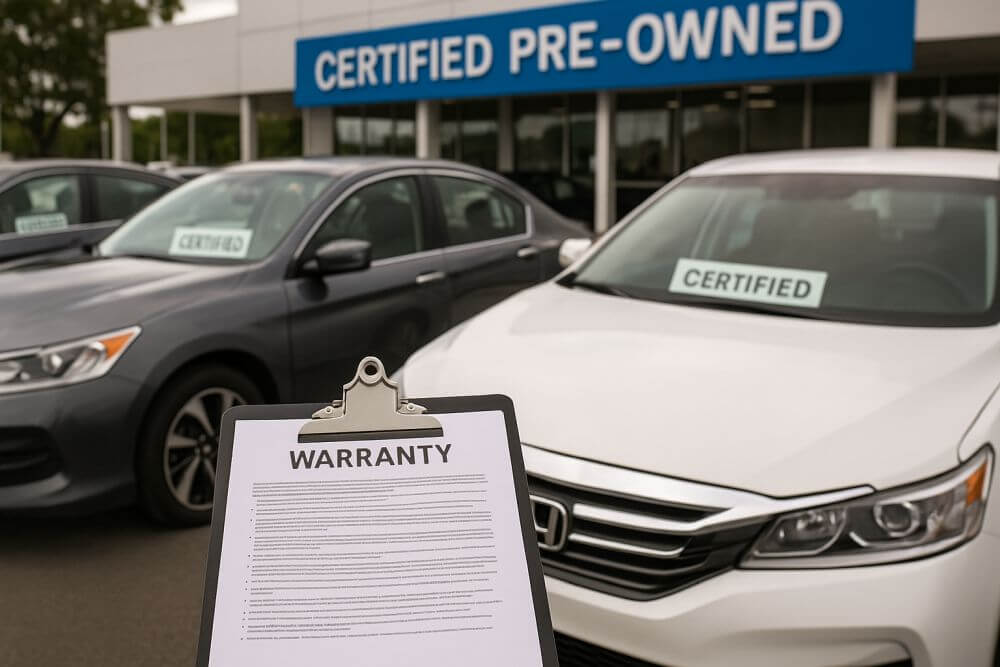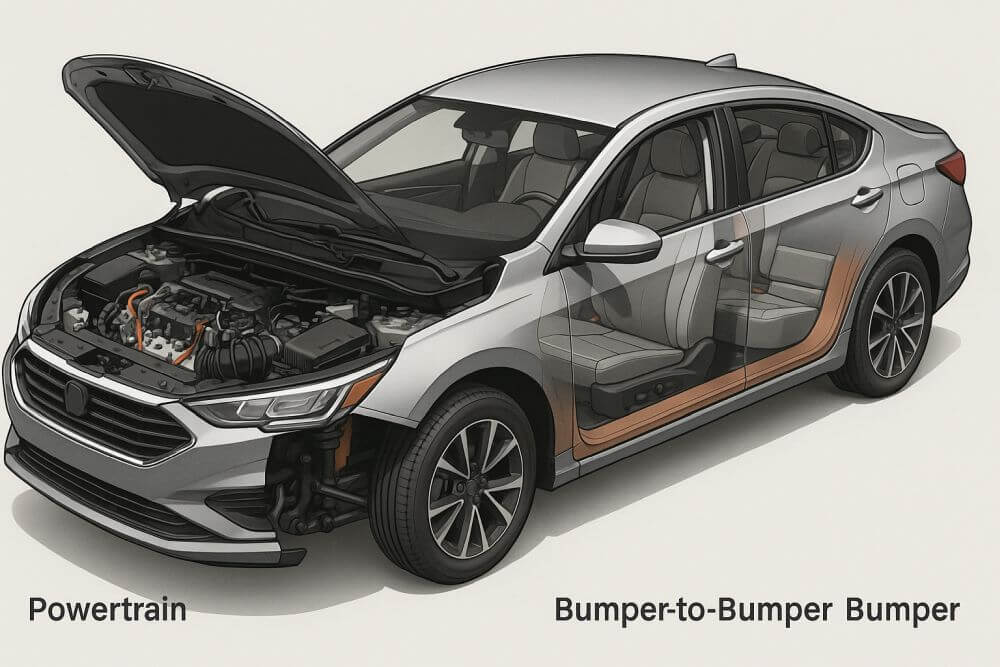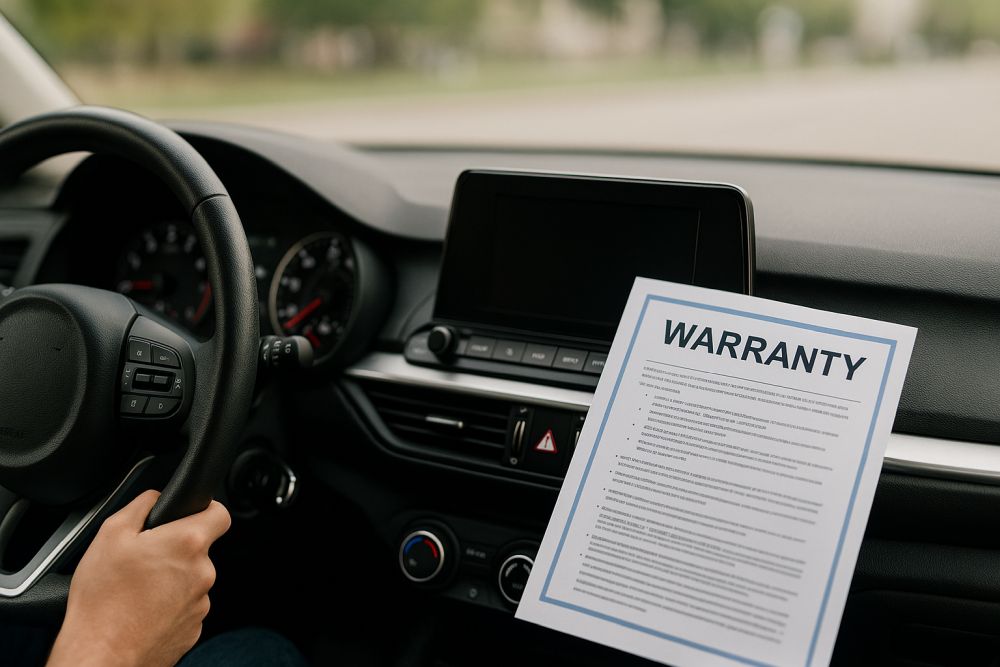A car title is a legal document that provides proof of ownership of a vehicle. It is issued by the state in which the vehicle was purchased and serves as a permanent record of ownership. The car title also includes important information about the vehicle, such as its make, model, year, VIN number and odometer reading.
When purchasing a used car, the buyer should always request to see the car title before completing the sale. The seller must sign over their rights to the vehicle on the title to transfer ownership of it to the buyer. After signing, both parties should keep a copy of the title for their records. In some states, registration fees must be paid when transferring ownership of a vehicle and this will usually require submitting copies of both parties’ titles.
Understanding car titles is an important part of purchasing a vehicle. A title provides information about the history of the vehicle. It helps to protect buyers from potential fraud or misrepresentation when buying a car. The title will provide information whether it has been branded or salvaged, and any existing liens on the vehicle.
It is important for buyers to do their research and verify the title status to ensure that they are getting a good deal on their purchase and that they are not being taken advantage of. Knowing all the details provided in a title can help buyers make smarter decisions when shopping for a new car.
What are the different types of car titles?
There are several different types of car titles, which vary depending on the state in which the vehicle is registered. In some states, a certificate of title is issued when an individual purchases a car, while others issue title deeds for vehicles purchased from private sellers.
It’s important for car owners to familiarize themselves with their local laws regarding car titles and make sure they have proper documentation for their vehicles at all times.
Clean Title
A clean or clear title on a car is an assurance of its quality and reliability. It means that the car has not been involved in any major accidents or other issues that would affect its performance or value. A clean title also means that the car has not been salvaged or rebuilt, which can mean there are underlying problems with the vehicle. A clean title also indicates that all of the paperwork associated with the car has been taken care of properly, such as registration and insurance.
Salvage Title
A salvage title is issued when a car has been declared a total loss due to damage by accident or natural disasters; this title must be maintained by the owner in order to drive the vehicle legally. A car with a salvage title may be repaired and put back on the road, but it will always have this designation in its paperwork. It’s important to remember that when buying a car with a salvage title, you may end up paying more for repairs than you would if you bought a vehicle without one.
There are certain states that do not permit vehicles with salvage titles to be registered, so it’s important to check your local laws before making any purchase. The upside of purchasing a vehicle with a salvage title is that such cars are usually much cheaper than those without one; however, buyers should make sure they’re aware of all the risks associated with such purchases before committing to anything.
Reconstructed Title
A reconstructed title may be issued if repairs have been made to bring the car to its original condition. The process for obtaining a reconstructed title varies by state but usually requires proof of repairs, inspections, and other documents proving ownership.
It is important to be sure that all of the required paperwork is obtained and submitted properly to ensure that your vehicle will be registered correctly with your local DMV. Having a reconstructed title on your car can help protect you in case of any legal issues with the sale of your vehicle.
Rebuilt Title
When you purchase a vehicle with a rebuilt title, you can be sure that it has gone through rigorous testing and inspection to make sure it is reliable and safe. A rebuilt title also allows buyers to get more value for their money since these cars are typically cheaper than vehicles with clean titles. Buying a car with a rebuilt title can provide significant savings for savvy shoppers who want to get the best deal possible on their next vehicle purchase.
Rebuilt titles are issued when a car has been in an accident that caused significant damage, but was repaired to become roadworthy again. The rebuilt title is evidence that the car has undergone extensive repairs and inspections to ensure it meets safety standards and is safe to drive.
Bonded Title
A bonded title is required when proof of ownership cannot be established through other means, such as an existing title or bill of sale. It is an alternative to the traditional title process, and can be used when an individual or business cannot obtain a standard title due to lost paperwork, missing signatures, or other factors. A Bonded Title acts as proof of ownership, allowing the owner to register their car and legally drive it on public roads.
The process for obtaining a Bonded Title usually involves submitting documentation such as photographs of the car and bills of sale to prove ownership and paying associated fees. Once approved, the state will issue a Bonded Title that can be used in place of the original title. It is important to keep in mind that some states may require additional steps or information before issuing a Bonded Title.
Lemon Law Title
The Lemon Law Title on a car is an important protection for car owners, as it can help them to receive compensation if their vehicle has major defects. The lemon law title applies to new and used cars, and it requires that automakers provide customers with a warranty or repair the issue if the car fails to meet standards of quality and performance.
If the manufacturer fails to do so, they are required to give the customer a refund or replace the vehicle. The Lemon Law Title also states that automakers must pay reasonable costs associated with repairs, such as labor and parts. This law provides necessary protection for consumers, who may otherwise be stuck with a faulty vehicle without any recourse.


